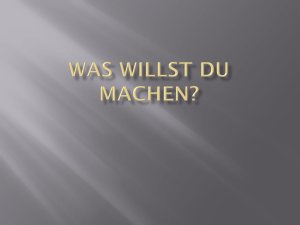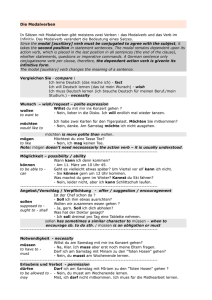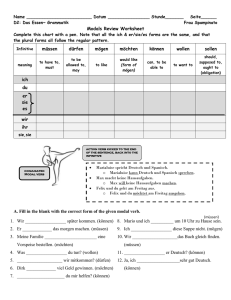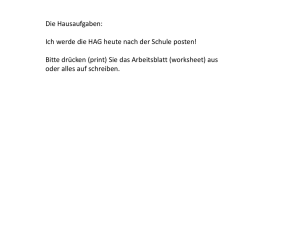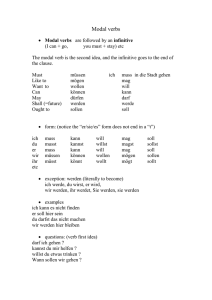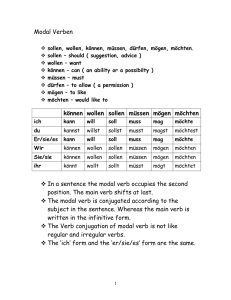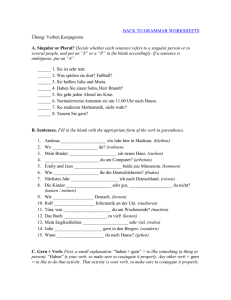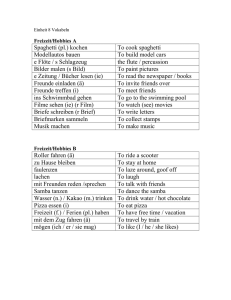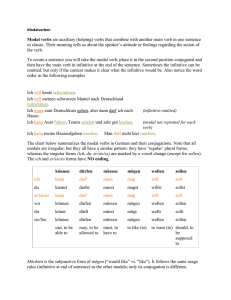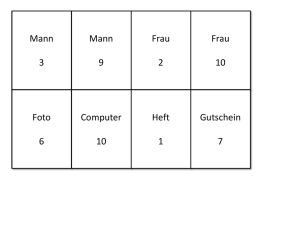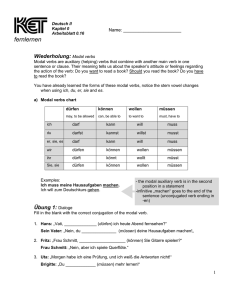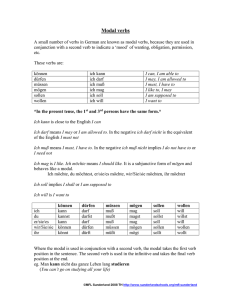Modalverben: Formen und Bedeutungen
Werbung
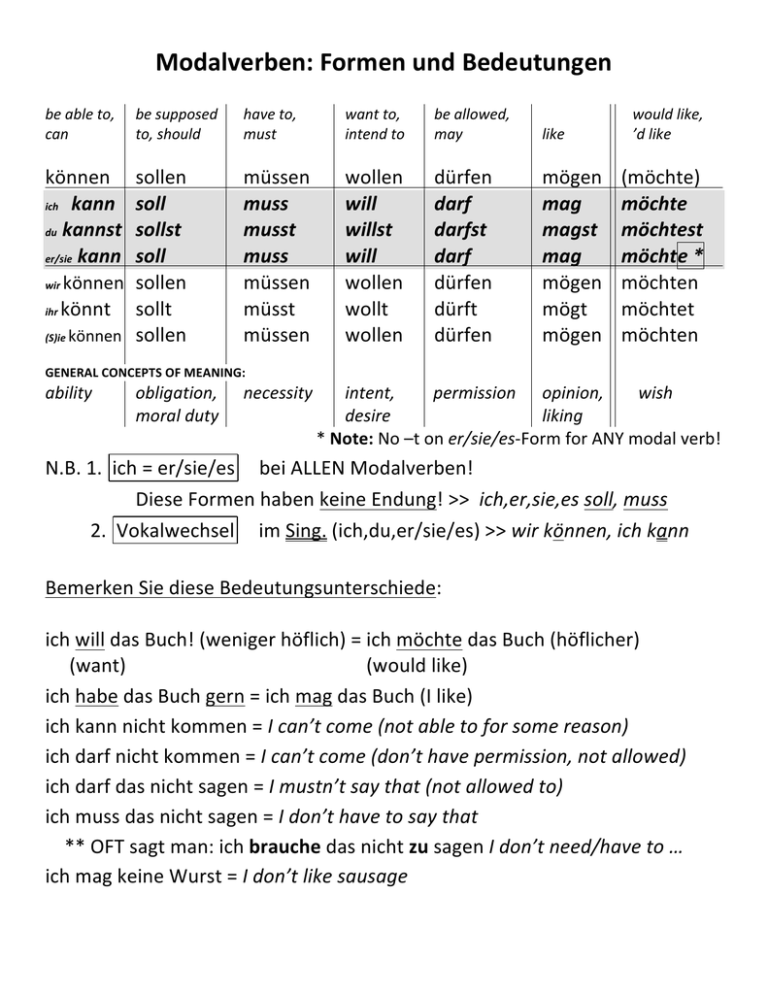
Modalverben: Formen und Bedeutungen be able to, can be supposed to, should have to, must want to, intend to be allowed, may like would like, ’d like können ich kann du kannst er/sie kann wir können ihr könnt (S)ie können sollen soll sollst soll sollen sollt sollen müssen muss musst muss müssen müsst müssen wollen will willst will wollen wollt wollen dürfen darf darfst darf dürfen dürft dürfen mögen mag magst mag mögen mögt mögen (möchte) möchte möchtest möchte * möchten möchtet möchten GENERAL CONCEPTS OF MEANING: ability obligation, necessity intent, permission opinion, wish moral duty desire liking * Note: No –t on er/sie/es-­‐Form for ANY modal verb! N.B. 1. ich = er/sie/es bei ALLEN Modalverben! Diese Formen haben keine Endung! >> ich,er,sie,es soll, muss 2. Vokalwechsel im Sing. (ich,du,er/sie/es) >> wir können, ich kann Bemerken Sie diese Bedeutungsunterschiede: ich will das Buch! (weniger höflich) = ich möchte das Buch (höflicher) (want) (would like) ich habe das Buch gern = ich mag das Buch (I like) ich kann nicht kommen = I can’t come (not able to for some reason) ich darf nicht kommen = I can’t come (don’t have permission, not allowed) ich darf das nicht sagen = I mustn’t say that (not allowed to) ich muss das nicht sagen = I don’t have to say that ** OFT sagt man: ich brauche das nicht zu sagen I don’t need/have to … ich mag keine Wurst = I don’t like sausage Satzklammer bei Modalverben Remember that in German elements that complement the verb meaning are normally in FINAL position in the sentence. This results in the Satzklammer, or 2-­‐pronged sentence clip that holds the rest of the sentence inside it: Monika spielt heute nachmittag mit Max Fußball . Gehst du manchmal im Wald spazieren ? Am Freitag lädt der Professor seine Studenten ein . Now on to modal verbs. Some modal verbs can be used alone: Ich mag gar keine Pizza. Willst du noch ein Bier? Usually, though, modals are completed by another verb idea. This second verb is ALWAYS in the INFINITIVE form (-­‐en) and in the complement spot: Modalverb (V-­‐2/V-­‐1) Infinitiv Hans muss morgen abend mit Karl in die Stadt fahren . Könnt ihr vielleicht für mich die Zeitung mitbringen ? Mein Bruder will alle seine Freunde zur Party einladen . Kinder!! Ihr dürft doch keine Würmer essen ! This is natural: the Satzklammer consists of the verb & its complement (completing idea). Modals usually need a complement. Remember that English complements usually are next to or near the verb: Hans must go downtown tomorrow night with Karl. Can you guys bring the newspaper for me? My brother wants to invite all of his friends to the party. Children!! You mustn’t eat worms!
